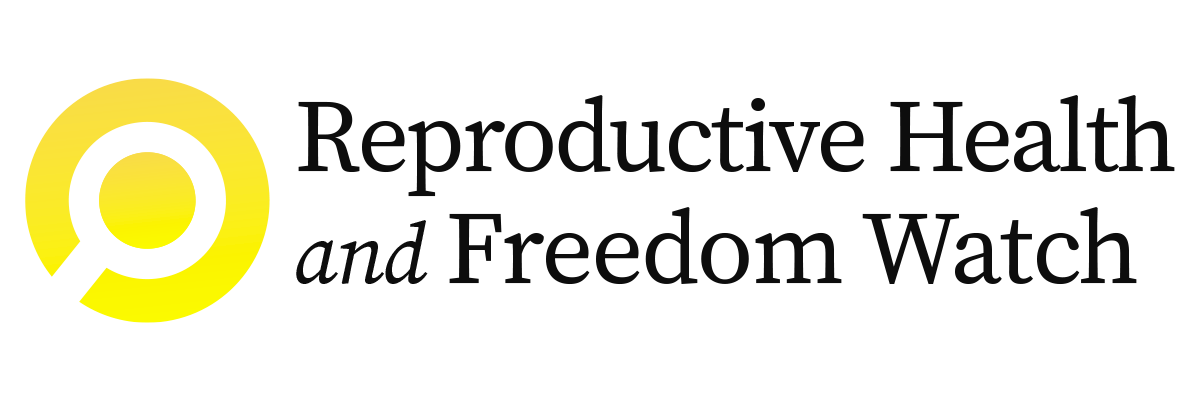
WASHINGTON, DC — Yesterday, Reproductive Health and Freedom Watch, an organization that exposes and counters efforts to obstruct access to reproductive and maternal health care, released a report revealing how Unregulated Pregnancy Clinics (UPCs) have secured over $510 million in taxpayer funding between 2021-2024 while operating without standard financial oversight or accountability measures.
While lawmakers are announcing cuts to food assistance programs, Medicaid, and childcare subsidies, the report details how these clinics—commonly known as “crisis pregnancy centers”—have strategically targeted state-level taxpayer funding streams, with seven states already proposing nearly $200 million in 2025 alone. The report was featured in States Newsroom Reproductive Rights Today newsletter, highlighting the report’s findings that while legislators in Washington slash funding for health and social programs, lawmakers in at least eight states are “considering giving [UPCs] millions more” in 2025, on top of the “$510 million directly from state legislatures between 2021 and 2024.”
To schedule an interview with Reproductive Health and Freedom Watch Executive Director, email Ro@FocalPointStrategyGroup.com. The full report is available here.
Read Below:
States Newsroom: Anti-abortion centers need regulatory oversight, advocate says
Lawmakers in conservative-leaning states have directed millions of dollars in taxpayer funds to [UPCs] over the past five years, a new report shows.
[UPCs] received $510 million directly from state legislatures between 2021 and 2024, according to a report released this month by the advocacy group Reproductive Health and Freedom Watch.
Debra Rosen, executive director of the group, said legislatures should increase oversight of the clinics they’re funding and ensure they’re protecting the privacy of the patients that visit for necessities, including diapers, baby clothes and infant formula.
“We’re now at a point where we’re talking about a footprint of almost 3,000 of these clinics across the country,” Rosen said. “We need to take a different approach here and better understand what is happening inside these clinics.”
Because [UPCs] offer services free of charge and are not considered health care facilities, they are not forced to comply with the Health Insurance Portability and Accountability Act (HIPAA), a federal law that shields patient information.
This year, lawmakers in at least eight states — Arkansas, Indiana, Kansas, Minnesota, Missouri, Ohio, Texas and Utah — have considered giving [UPCs] millions more, the report found.
Rosen offered a three-step approach for lawmakers to regulate [UPCs]: 1) enact reporting requirements on finances “so taxpayers know how their dollars are being used and regulators can assess whether they are being used properly” 2) make staff protect the privacy of clients and 3) shore up oversight over services offered at these centers.
Democratic lawmakers in at least three states have introduced bills this year to increase transparency at [UPCs].
A New Jersey Assembly panel advanced a bill last month that would make [UPCs] face penalties for violating the state’s Consumer Fraud Act. Violators would have to issue a statement correcting the false or misleading information, New Jersey Monitor reported. The bill comes about a year and a half after the attorney general’s office issued a consumer alert about [UPCs] — there are more than 50 in the Garden State, according to the Monitor.
North Carolina Democrats unveiled legislation in the General Assembly last month that would cut millions in state funding going to [UPCs], Axios Charlotte reported. The bills would redirect [UPCs] funds to reproductive health and justice organizations, and allow the attorney general to investigate complaints of misleading advertising or deceptive business practices.
Legislation was introduced in the North Dakota House that would have set regulatory requirements for centers, including that they have a qualified health care provider on staff, medically accurate and comprehensive counseling, and mandatory financial reporting, but the measure failed in February.
